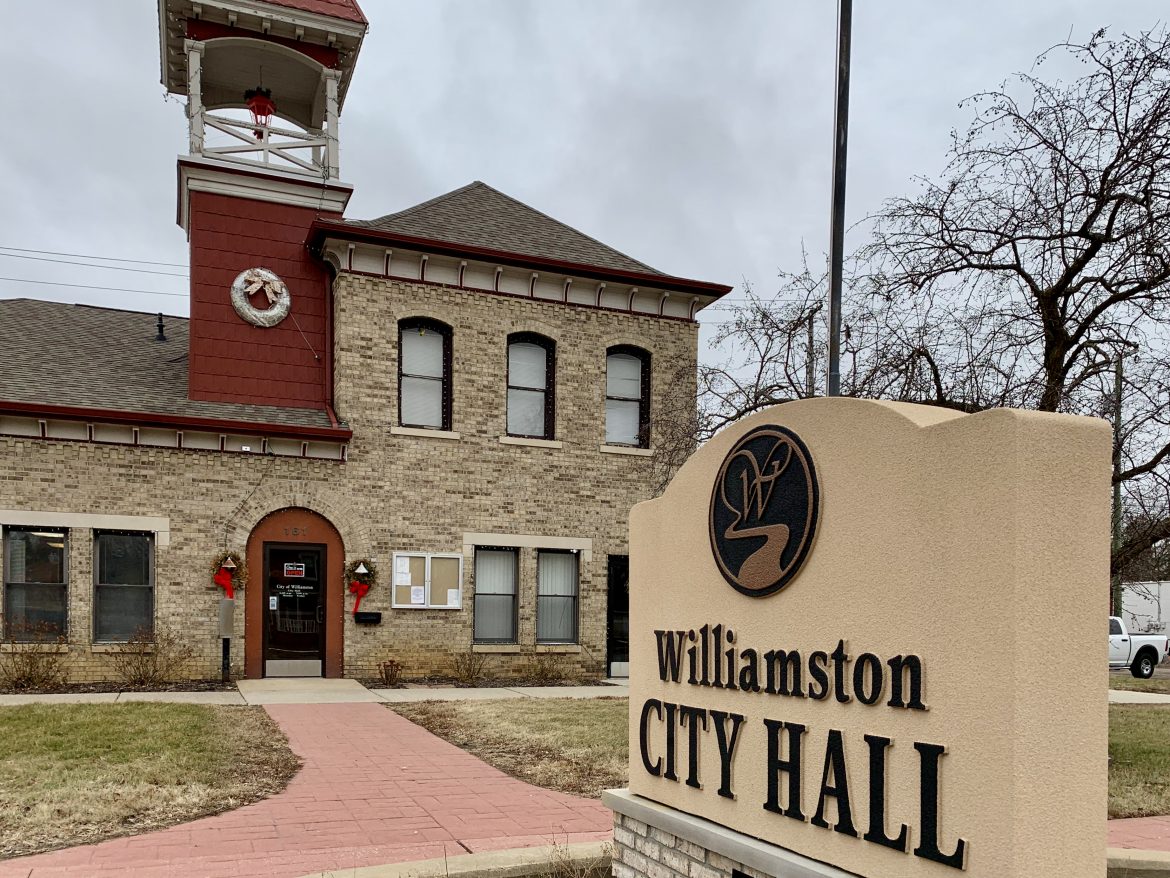Williamston City Manager Corey Schmidt presented the city council meeting on Jan. 27 an economic development plan for Williamston’s I-96 Industrial Park to the city council.
The town is required to form an economic development strategy through the Redevelopment Ready Communities Program, which is designed to promote effective redevelopment strategies and help create “a vision for the future.”
The program encourages consistency between the private and public sectors in development projects, said Schmidt.
The city submitted its resolution along with evaluation forms a year ago to the program. Schmidt said the program planner would be coming to the next city council meeting to give a presentation about their evaluation.
Abatement Policy Standards
One question lingered: What are the policy decisions the city is going to make when it comes to economic development in abatements?
An economic development strategy includes types of incentives offered and supported by the municipality. When it comes to these incentives and abatements, the city can provide whatever the State of Michigan will allow.
Schmidt said the city only has two existing tax abatements; Centurion Medical Products and Midway Rotary Die and Solutions, which are associated with the industrial park.
Both businesses have a 50% tax reduction for up to 12 years. This means up to half of the property taxes on these businesses can be reduced.
At the local Downtown Development Authority level, Williamston has a Façade Improvement Program, which encourages business owners to make improvements to their facades and their buildings. This program also allows reimbursements for these improvements of up to 50%.
“That program has been very successful, and there has been a lot of good work that has happened in the downtown,” said Schmidt.
After his presentation ended, Schmidt wanted the council to determine its stance on an abatement policy. Schmidt said if there is support, granting abatements would be the duty of the council.
One important note is these policies can support a specific development goal. Schmidt said for many years, the main city goal has been to locate businesses in the industrial park.
“It’d be nice when going through the abatement processes with these industrial facilities that we can say definitively what our program is,” said Schmidt.
I-96 Industrial Park
Mayor Tammy Gilroy said she thinks the town has been doing some good work in trying to attract businesses to the I-96 Industrial Park.
“I think we should keep moving this work forward and try to come up with something,” Gilroy said.
Councilmember Jeffery Weiss had one question for Schmidt: “Are there any communities you know of that have these abatement policies that are successful?”
Schmidt said he’s looked into how the city of Mason is working to form their abatement policy, although he doesn’t know of any success thus far.
“We have all of the property there in the industrial park, it’d be great to fill it,” said Weiss. “If this policy is a channel to do that, then I’d be in support of it.”
Gilroy said she’d be interested to know what Delta Township has done because new buildings are going up all the time. She thinks there has to be some incentive policy that is drawing manufacturers to the area.
“I think the more attractive we can make our industrial park … something is better than nothing,” said Gilroy. “But I think we are on the right path.”
The council came to the consensus that they need to come up with a simple policy document that can help guide the city manager regarding industrial facilities and abatements.
